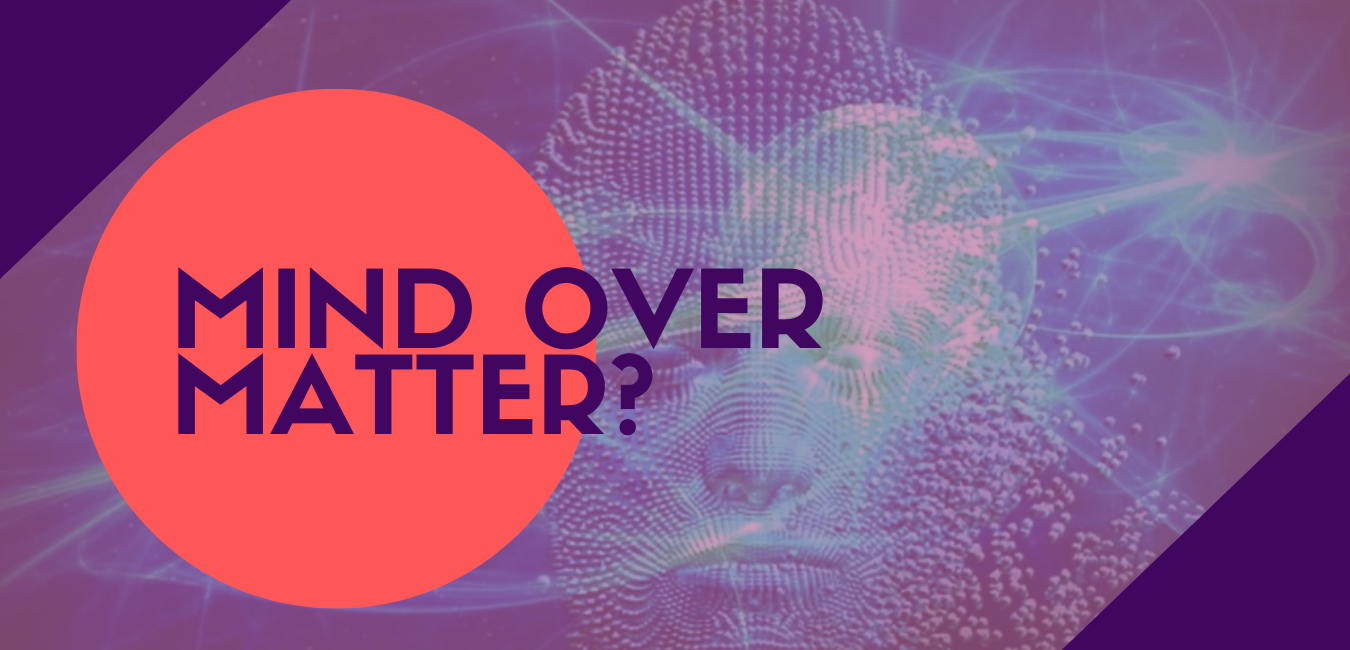Mind over matter is a phrase I’ve heard several times in my life. It means that perspective is more important than the actual situation. You know the age-old question, “is the cup half-full or half-empty?” The answer comes back around to the optimist and pessimist views.
Mind over matter is one way of saying you can change a situation just by changing how you view it. One example is people saying you can just choose to be happy or that a positive perspective will solve your problems.
I call bullshit on that.
Now, I’m no expert. Matters concerning trauma and mental illness are best dealt with by professionals, and these articles are not a substitute for that. I always recommend seeking professional help when possible.
However, this mind over matter business does affect people’s mental health, and it has spread quite fiercely.
The Mind IS Powerful
To start, you have a great amount of control over your life and mind. It could be more than you realize. The thoughts you think, the things you do, the people you spend time with, all of these are in your control to some degree (circumstantially).
For example, you can choose to keep drinking four Dr. Peppers a day. You can also choose to drink water instead. This will have some effect on your life, and it’s a choice you’re in control of. Makes sense, right?
There are situations where the way you view people’s actions and intent can affect how you feel and react. If you don’t believe it, think of this. A man spends $400 from the joint bank account with his wife. She finds out and is furious with him. She asks why he did it, and he says it was to get something for her. She is mad because she never asked for that and demands the money back. However, when the man reveals that he used the money to buy the puppy she’d wanted for so long, she is no longer angry.
What changed? He still spent the money. He still got something she didn’t ask for.
She had a change of perspective. He did something that she didn’t ask for, but it was something she wanted. The money is still spent, but her view on why it was spent has changed.
This is how powerful the mind is. As soon as it has a change of perspective, everything can shift as well. However, that change isn’t always so quick and neat.
The Mind can’t Fight Chemicals
Here is the kicker. No matter how much you might tell yourself something or be convinced of it, chemicals will win out.
Our nervous system relies heavily on neurotransmitters. These transmitters, such as serotonin, endorphins, and cortisol, are responsible for most of our emotions. If even one of these is out of balance, we will have a reaction. It could be a good reaction, like having a girlfriend and getting a boost in oxytocin, which will make you relaxed, loving, and happy. It could be negative, like going through a breakup and receiving a massive cortisol dose, leaving you stressed and depressed.
So, let’s say you try to turn your situation around by having an “only positive vibes” kind of mindset. Well, it might help to some extent. However, while you have an imbalance of chemicals, you will be unable to stop the emotions that follow, regardless of the mindset.
Mindset VS Emotion
Emotions and mindsets are connected. It’s possible to influence what we experience by changing our outlook.
In her book “Mindset,” Dr. Carol Dweck wrote extensively about how having a growth mindset is better than having a fixed mindset. She wrote about the hero’s tale: Loss, vulnerability near defeat, comeback, and triumph. It is the tale of a growth mindset.
However, our mindset does not always determine our emotions.
The hero still experiences loss and grief. They get so caught up in their grief, in fact, that they come near defeat. They almost completely lose to either themselves, their darkness, or some external evil.
There are plenty of times when I have sorted out my problems and resolved the issues at hand. I understood what happened. Everything made sense, and there was no reason to have negative emotions. Yet, I was still all consumed by the circumstances and could do nothing but weep and grieve.
What’s the Takeaway?
It’s to understand that emotions are only partly in our control. No one else can control them, and neither can you. Not completely.
So, let them exist. Appreciate that you are alive to feel. It won’t be nice, but it’s unavoidable sometimes. You’ll cry, be angry, and have glee enough to bound off walls. That’s the chemicals at work.
Here are a few good practices to keep in mind when it comes to emotions and mindsets.
Own your Emotions
They are yours, and they are part of you. We aren’t robots, so don’t try to be. Let your emotions flow through you and then out of you. Sprint and shout with joy that you got a promotion, or scream and curse when you lost your job. Don’t hold back.
Develop your Mindset
I said the mindset can’t control your emotions. It will only influence them to some degree. However, your mindset will determine how you deal with these emotions. Will you deem yourself a failure and stay down? Or will you rise from the ashes as a phoenix? Your mindset will decide.
Talk to Others
Talking to other people will give you the chance to express yourself in ways you can’t by yourself. Don’t be afraid to lean on them in your times of need. If you have surrounded yourself with good people, they will be glad to help.
If you have questions or are curious about other topics, please contact us. We want to bring you the content you want!
